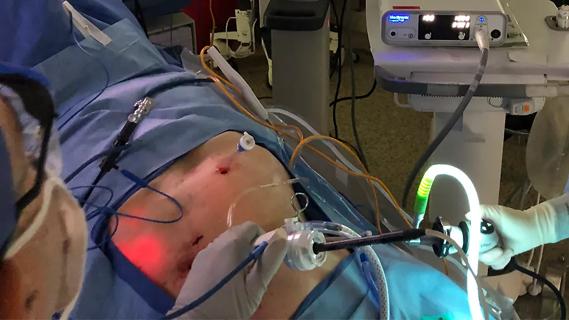Findings could help clinicians make more informed decisions about medication recommendations

A large new study by Cleveland Clinic researchers has found that Tirzepatide is associated with better cardiovascular outcomes than Semaglutide in MASLD patients with obesity and Type 2 diabetes.
Advertisement
Cleveland Clinic is a non-profit academic medical center. Advertising on our site helps support our mission. We do not endorse non-Cleveland Clinic products or services. Policy
Cleveland Clinic hepatologist and senior author Dian Chiang, MD, MPH, calls the findings a “critical piece of information” that could help guide treatment decisions. He notes that the new study is the first to compare cardiovascular outcomes for the two drugs in this population.
“We have more and more evidence that these medications do work — not only to help with liver-related outcomes, but also with cardiovascular outcomes,” he says. “And now we have evidence that a dual agonist is better than a single agonist.”
The study compares real-world liver and cardiovascular outcomes for the two drugs in MASLD patients with obesity, and type 2 diabetes. Using the TriNetX health research network, researchers analyzed data for almost 31,000 adult patients.
Tirzepatide was associated with significantly lower risks of major adverse cardiovascular events, all-cause mortality, and all-cause hospitalizations than Semaglutide. Patients receiving tirzepatide also had lower risks of cardiovascular outcomes like myocardial infarction, heart failure and heart failure exacerbations.
Researchers found no significant differences in liver outcomes like cirrhosis and hepatocellular carcinoma.
Dr. Chiang says the results were not surprising.
“I think this reconfirmed what we have suspected, especially knowing that Trizepatide, because it’s a dual agonist, has a better weight loss and blood sugar control effect compared to GLP-1 only,” he explains.
That doesn’t mean Trizepatide will be the better drug for all patients, he adds, noting that for some patients with MASLD, weight loss that is too rapid could be harmful to the liver.
Advertisement
“This new information will help physicians and patients make an informed decision, but I don’t think the physician will make their recommendation solely on this study alone,” he says.
As a next step, researchers are conducting a subgroup analysis to understand how different patient cohorts respond to the drugs.
“We want to know which patients will benefit the most from which one, and how we can offer it in a way to maximize the benefit and minimize the complications,” says Dr Chiang. “So, the next stage of clinical research will be identifying factors to help us individualize treatment.”
The study, “Comparative Efficacy of Tirzepatide vs. Semaglutide in Patients with MASLD/MASH, Obesity, and Type 2 Diabetes Mellitus: A Real-World Cohort Study,” will be presented at this year’s American College of Gastroenterology meeting.
Advertisement
Advertisement

Multidisciplinary framework ensures safe weight loss, prevents sarcopenia and enhances adherence

Findings are first to provide underlying explanation, linking the diagnosis to high-immune activation and worse clinical outcomes

Histotripsy is noninvasive and may generate abscopal effect

IBAT inhibitors, elastography and more

New device offers greater tumor control for malignant liver lesions

Reviewing how the drug can be incorporated into care

Standardized and collaborative care improves liver transplantations

Cleveland Clinic specialists discuss challenges and opportunities for managing the disease